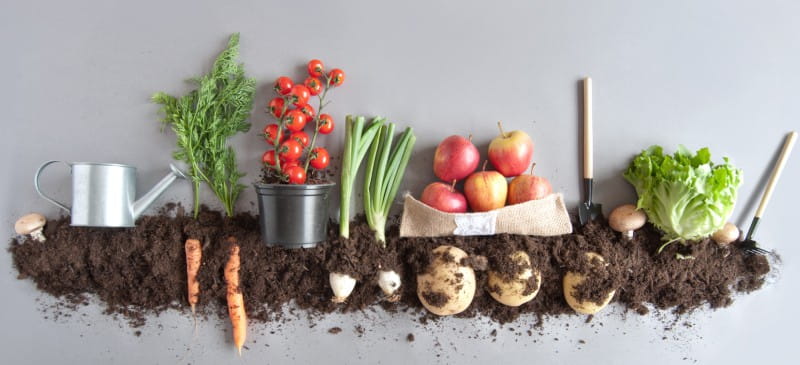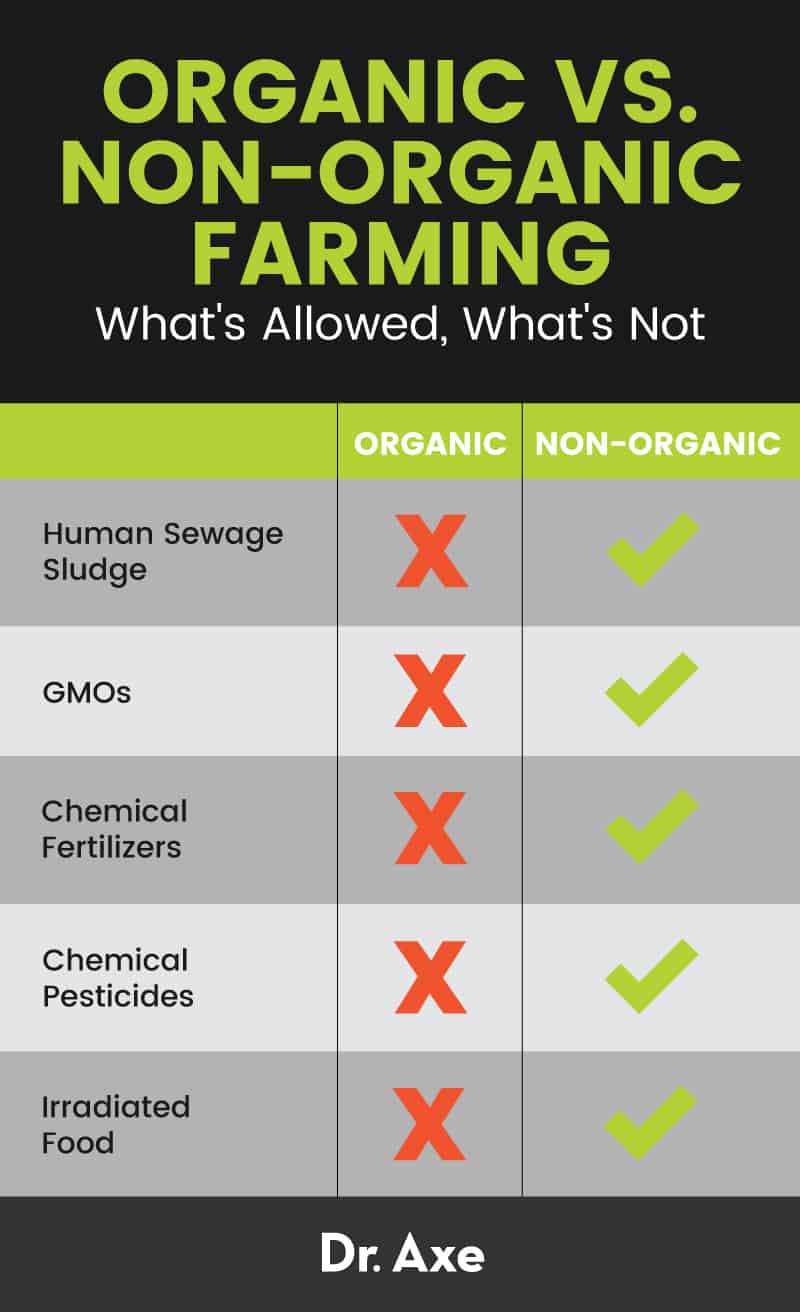Eating Organic Foods Reduces Cancer Risk
Does Eating Organic Foods Reduce Cancer? Researchers in France Say “Yes”
Foods Reduce Cancer
It’s official: Eating organic foods reduces your risk for developing cancer. New research out of the Institut National de la Sante et de la Recherche Medicale in France brings incredible news. That’s right, choosing organic foods over conventionally grown foods can reduce your risk of cancer by 25 percent.
The concerning part? More than 90 percent of the U.S. population harbors detectable pesticides in their blood and urine. What does this mean for our future health? Well, for one thing, big companies that use and produce pesticides may have to start owning up to the data. Non-industry-funded research repeatedly links these chemicals to cancer. Another thing to consider? This new French study comes on the heels of Environmental Working Group’s recent testing that detected glyphosate in cereal. It appears that Monsanto’s Roundup and other pesticides are downright dangerous for our health.

What Is Organic Food?
Organic foods production bans the use of:
- Chemical pesticides
- Synthetic fertilizers
- Sewage sludge
- Ionizing radiation
- Bioengineering (GMOs)
To earn the organic label, a government-approved certifier inspects the farm and approves the food product. This happens to make sure the grower is following the rules set in place by the United States Department of Agriculture.
When it comes to organic farming, there are strict standards and inspections in place. Organic agriculture only permits the use of natural fertilizers like manure and compost. Other hallmark methods of organic farming include: (1)
- Crop rotation
- Companion planting
- Natural pest control
- No GMOs
Research shows that when people switch from eating conventionally grown foods to more organic foods, concentrations of pesticide metabolites in urine decreases.
Although we know that eating more organic foods and less conventionally grown foods will reduce the amount of pesticide residues in our bodies, what exactly does this mean for our health?
In 2015, the International Agency for Research on Cancer (IARC) classified three pesticides frequently used in agriculture as carcinogenic to humans. Yes, that means that according to the IARC, glyphosate, malathion and diazinon are chemicals used on our food even though they may cause cancer in humans.

Until recently, evidence supporting the carcinogenic effects of these pesticides was based only on occupational exposure, primarily in agricultural settings. But what about low-level pesticide exposure in the general population, which primarily comes from the intake of conventionally growth fruits and vegetables? That’s the exact question that researchers in France sought to answer with this study.
Study: Organic Foods and Cancer Prevention
The 2018 October study appeared in JAMA Internal Medicine. It examines the association between self-reported organic food intake and cancer risk. Researchers collected data on more than 68,900 French adults, with a mean age of 44 years, in order to establish their organic food consumption frequency and dietary intake.
For 16 food products, including fruits, vegetables, dairy, meat, fish, eggs and vegetables oils, the participants reported how often they chose organic over conventional options by selecting one of eight categories, including “never,” “occasionally” and “most of the time.” Based on an individual’s self-report, researchers computed an “organic food score” and used it to estimate a person’s risk of cancer.
Study authors followed the participants for a mean of five years, analyzing the incidence of cancer during a followup assessment.
Of the 68,946 volunteers, 1,340 developed cancer, including 459 cases of breast cancers, 180 prostate cancers, 135 skin cancers, 99 colorectal cancers, 47 Non-Hodgkin’s lymphomas and 15 other lymphomas. Researchers pointed out that among these types of cancer, individuals with a higher frequency of organic food consumption enjoyed a reduced risk for three specific cancer sites: postmenopausal breast cancer, Non-Hodgkin’s lymphoma and other lymphomas.
According to researchers, eating a higher frequency of organic foods correlates to a 25 percent lower risk of cancer diagnosis. More specifically, people eating the highest intake of organic foods experienced a 73 percent lower risk of developing non-Hodgkin’s lymphoma and 21 percent lower risk of developing postmenopausal breast cancer. (2)
Drawbacks of Study?
Although this recent data suggests what we already suspected — that eating organic foods is likely better for human health, there are some drawbacks to this particular study that we need to address.
One possible weakness of the study lies in the fact that organic food intake is notoriously difficult to assess. Eating at a restaurant, take-out spot or friend’s house makes it more difficult to know verify food sources. So there may be an issue of misclassification in some cases. Plus, not all conventional foods are equal. Some contain more pesticides (or more potent pesticides), and this study doesn’t take this into account. So if a study participant chose to go organic with all “dirty dozen” foods, but went conventional for the rest, that’s not considered here, either.
Also, researchers admit that the follow-up time for this study was short. This may have limited the statistical data for some forms of cancer.
And finally, people who did not choose to eat organically grown foods had the option to disclose their reasons for doing so. These include:
- Price barriers
- Limited availability
- Lack of interest
All participants who did not choose organic foods, no matter the reason, were lumped into one category. This may be a drawback because people who lack interest in organic foods entirely may experience an overall more negative approach towards health, which could influence the results of the study.
Organic Food Facts
- Farmers grow certified organic produce without synthetic fertilizers, chemical pesticides, preservatives, genetic modification, sewage sludge or radiation.
- To be certified organic, foods cannot contain or grow from genetically modified seeds.
- You can’t trust misleading food labels. Terms like “Natural,” “All Natural” and “100% Natural” are meaningless and don’t guarantee that the product is organic. (3)
- Research shows that organic foods contain higher amounts of health-promoting antioxidants and lower levels of cadmium, a harmful heavy metal. (4)
- Organic foods are better for the environment. Organic farms don’t pollute soil and nearby waters with harmful and toxic chemicals.
- Certain non-organic foods called the “dirty dozen” mean that these foods are especially loaded with pesticides. If you prefer to only buy some organic foods, then these should be the ones.
Final Thoughts on Organic Foods for Cancer Prevention
- Yet another study addressing the organic vs. non-organic food debate suggests that choosing organic is better for your health. This study specifically found a link between eating more organic food and experiencing a reduced risk of cancer.
- More human data is needed, but it does indicate that promoting organic food consumption in the general population could serve as a promising preventive strategy against cancer.
- We do know that other factors, like body weight, diet and physical activity, definitely do influence your risk of developing cancer.
- It’s true that organic foods are usually more expensive and sometimes even difficult to find in some areas of the country. So keeping in mind that higher intake of cancer-fighting foods, like fruits and vegetables, whether they are organic or conventional, is still encouraged as part of a well-balanced and healthy diet.
- You don’t want to cut out these important nutrient-rich food groups altogether just because they aren’t organic. To be extra safe, when organic foods are not an option, try avoiding the “dirty dozen” fruits and vegetables that are known to be contaminated with high pesticide residues.





Leave a comment